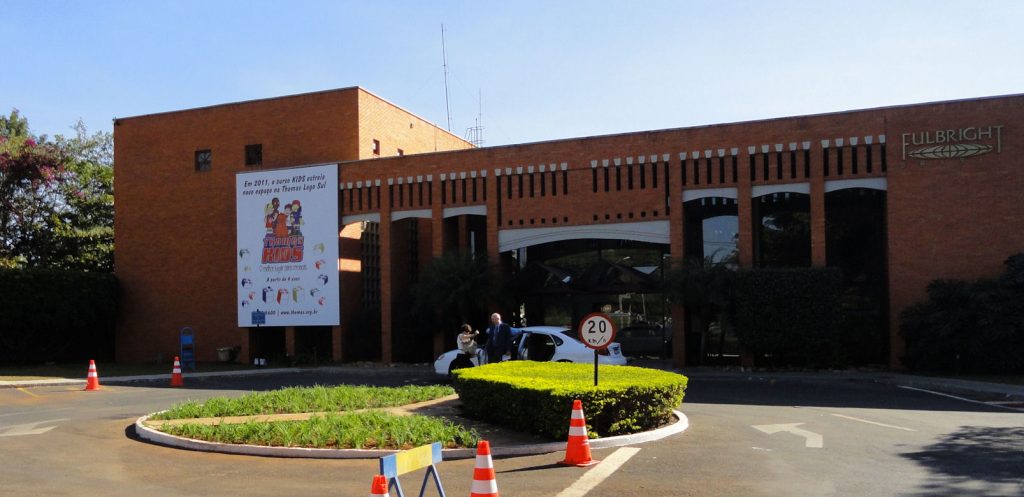
Many BNCs were created around Latin America during the years around World War II. They were supposed to foster understand and create connections among Americans and the people of Brazil and not incidentally counter Nazi propaganda, which was virulent and effective in the region.
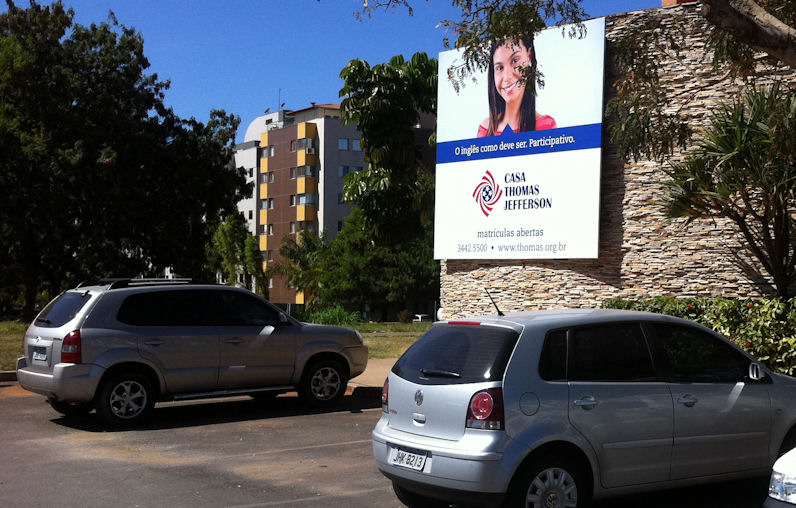
BNCs have gone in and out of style with the U.S. government. At times we have given them significant support; other times we benignly neglected them. Even during the time of relative official neglect, however, we always kept the ties intact because most American FSOs (USIA and State) – working in the countries – like BNCs. They are easy to like. They are locally managed and usually self-sufficient. Their boards of directors often include important local people, the kinds of people we want to get to know and they provide a continuity that us diplomats, who come and go like migratory birds, really cannot. We always have friends at BNCs and this is important in hard times and good ones too.
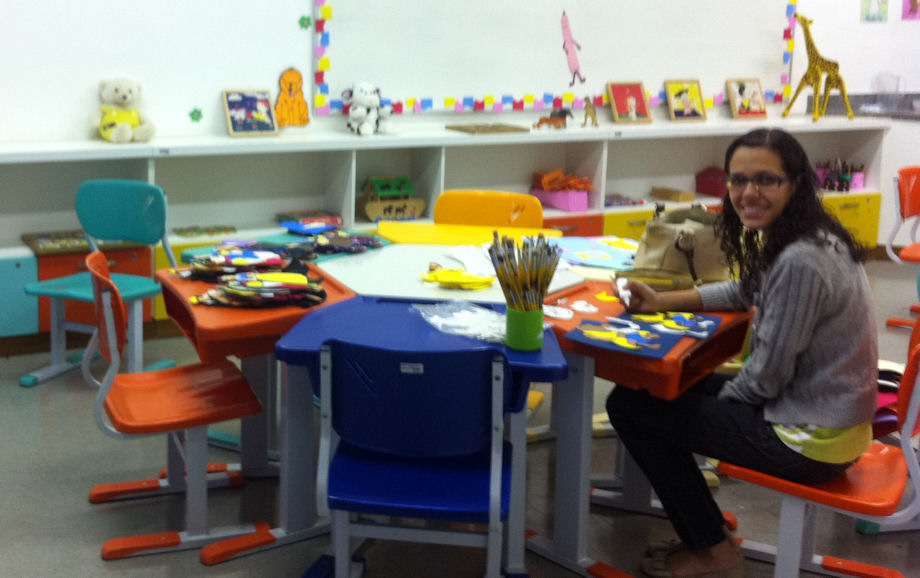
Most of the money needed to support BNCs comes from English teaching and English has become a big business in recent years. This is both a threat and an opportunity for BNCs. The BNCs now must compete with for-profit organizations that are often well-financed and springing up like mushrooms after a soaking rain. I have no problem whatsoever with profit-making enterprises, but as an American I prefer that English be taught in the context of our culture and values. And the BNCs provide much more than nouns, verbs, adjectives and adverbs. Besides providing scholarships for language study, BNCs sponsor cultural events, hold lectures and help us with our exchange and educational programs. To the extent that we really reach youthful audiences in depth, the BNCs are a big part of the equation.
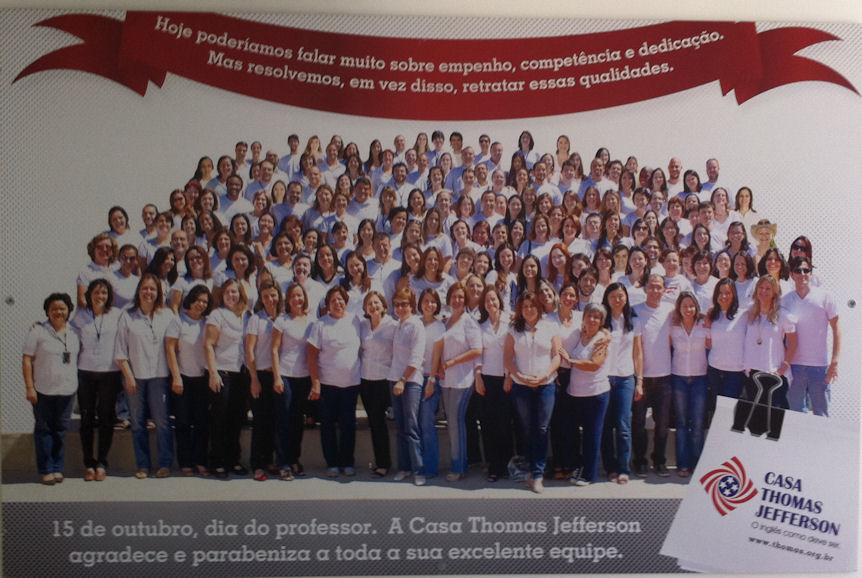
Last time I was in Brazil, I made it my business to visit the BNCs in my region (Rio Grande do Sul & Santa Catarina) on a regular basis. At that time, there were BNCs in Porto Alegre, Florianopolis and Joinville. I understand that the ones in Porto Alegre and Joinville are still prospering. Washington was in one of its less supportive phases back then, but I could still contribute books, programs and time. Attention by American diplomats was and is still important to BNCs. It adds to their cachet.
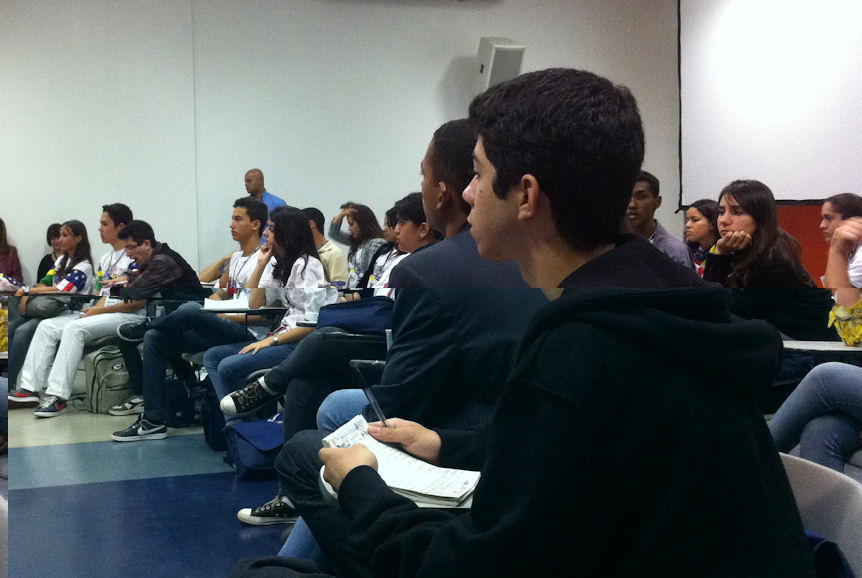
Today BNCs are back in style in official Washington because of their proven abilities to reach young audience and because of their expertise in English teaching. The English teaching is especially important in Brazil at this moment. The Brazilians themselves recognize the need. Their economy has gone global, but they do not have enough people with English skills needed to participate effectively. English is the world language of business, science and even tourism. With the flood of visitors expected for the World Cup in 2014 and the Olympics in Rio two years later, the Brazilians know that they need to start now to meet the demand for English.
We are in the enviable position of having what people want and wanting to give it to them.
There are around 40 BNCs in Brazil today. I say “around” because it depends on how you count. Some BNCs have a for-profit affiliation that some of the BNC purists think is not good. My opinion is that we should judge them by what they do. If the organization does all the things that BNCs should do, i.e. it provides scholarships, holds seminars & exhibits, cooperates with outreach and integrates energetically into its local community, I think that it looks and acts like a BNC and we can call it one if that is what it wants to be called. I think we should be as inclusive as possible. BNCs are a great legacy left to us by good and farsighted people – Brazilians and Americans – going back to the 1930s. We can benefit from their years of work and we have a duty to steward it for the next generations. I look forward to visiting our BNCs and hope to get to all of them over the next three years. I am glad that they are back in style.
Let me tell you a little about our BNC here in Brasilia. It is called the Casa Thomas Jefferson. I remember it from the 1980s, when it was run by my friend and USIS colleagues Maureen Taylor. Back in those days, an American FSO directed the CTJ. In fact, we still sent directors until 1997, a time of budget cuts and a general downplaying of the need for public diplomacy. But our departure did not spell the end of the CTJ. On the contrary, it has grown and prospered beyond the dreams of the earlier generation.
The Casa Thomas Jefferson today is run by Brazilians with a local board made up of mostly Brazilians and some expat Americans. It is completely self-supporting and has grown to include six significant campuses around Brasilia (look at the pictures I have included to see what I mean) and eight min—operations embedded in local schools.
CTJ affiliates teach around 15,000 students each year. Some start as young as four years old. I have included a photo of the little kid classroom. They are on break now, so the teacher is preparing materials for them. But the biggest groups of students are middle school of high school age, although a significant number of college students are still involved and there are some adults.
Brazilian government entities contract with CTJ for English teaching and cultural training for their officials who are going overseas or who will have to work with English in their jobs here. CTJ recently trained Brazilian air traffic controllers, who need to use English in their daily work, and also engineers from EMBRAPA (the Brazilian agricultural research agency) who have to travel and interact with scientists worldwide.
We still work closely with CTJ, providing mostly moral but also some material support. Our Information Resource Center (FKA library) is collocated with the Lago Sul branch of the CTJ, as is the Fulbright office. We are probably most useful to them when we provide connections and training opportunities for their staff and management. CTJ wants to keep in the forefront of developments and we, with our worldwide reach (State is a unique organization in that respect) help with that. We also have stationed in Brazil officers devoted specifically to education, English teaching and information resource management, who provide extremely valuable support. So I think we do our part.
As I have been writing, we during the last week we have been cooperating with CTJ on our English immersion program (see earlier posts). This has been a wonderful thing. CTJ will hold its own EducationUSA fair later in August. We can cooperate again in something that we all benefit from doing and benefits Brazilian young people.
All things considered, it is a pretty sweet deal for everybody involved. I like an agricultural metaphor. It is like an orchard. We are harvesting the fruit of trees planted and nurtured by those who went before us. Our job is to keep it growing, all the while enjoying the fruit.
Public diplomacy is hard to measure. If I tally up all the people who have gone through BNC programs all over Brazil this year alone, I am sure we have reached thousands. Over the years, we are in the millions. But Brazil is a country of 190 million. How can we hope to have an impact? Might it not be better to “reach” millions through things traditional or social media?
First I have to respond that doing one thing does not preclude others. Our BNC efforts include face-to-face meetings, which are labor intensive, but they also have enormous social media and traditional media components. You saw the full-page newspaper report on our English immersion, for example. We also got a good piece of time on the evening television news. There is a definitive synergy. But let me put that aside for now.
The BNC experience is deep, intensive and rich in favorable outcomes. Many of the people who use the BNCs develop lasting connections with American. Some of the students at CTJ, for example, are second or third generation, as former student parents sent their kids. Significant numbers want to study in the U.S. or work at U.S. firms. They are strongly committed and this has an effect through social networks, electronic and otherwise. Recent studies have shown that people get many of their attitudes through social interactions several steps removed from themselves. The attitudes of friends of friends of friends can affect your attitudes and even physical characteristics such as body fat. Academics have studies this for a long time and we know it is true, although those who tell you that they really understand the transition mechanism are lying to you. I believe that getting 100,000 people really interested and talking to others is better than “reaching” millions in a shallow and short term transaction. I cannot prove that to you, but I think even a casual perusal of the history of ideas shows that it happens.
The BNC is a high leverage activity. I can devote relatively small amounts of time and money and DEEPLY reach lots of people, who will in turn reach many more. Take the example of our recent intensive English group. Around 1600 students applied from public schools around Brazil. These are ordinary Brazilian kids, w/o much contact with America. They are doing an extraordinary thing just by applying. Around 100 were chosen. They are already a special group chosen from a special group and the experience improved their skills making them even more special. Now consider when they go home to places that are hard to find on the map. People will ask them about their experience. They will be the source of opinion. Who knows how many they will reach personally and how long they will continue to do it, but it will be a big number. And their experiences will pass through friend to friend for a long time.
